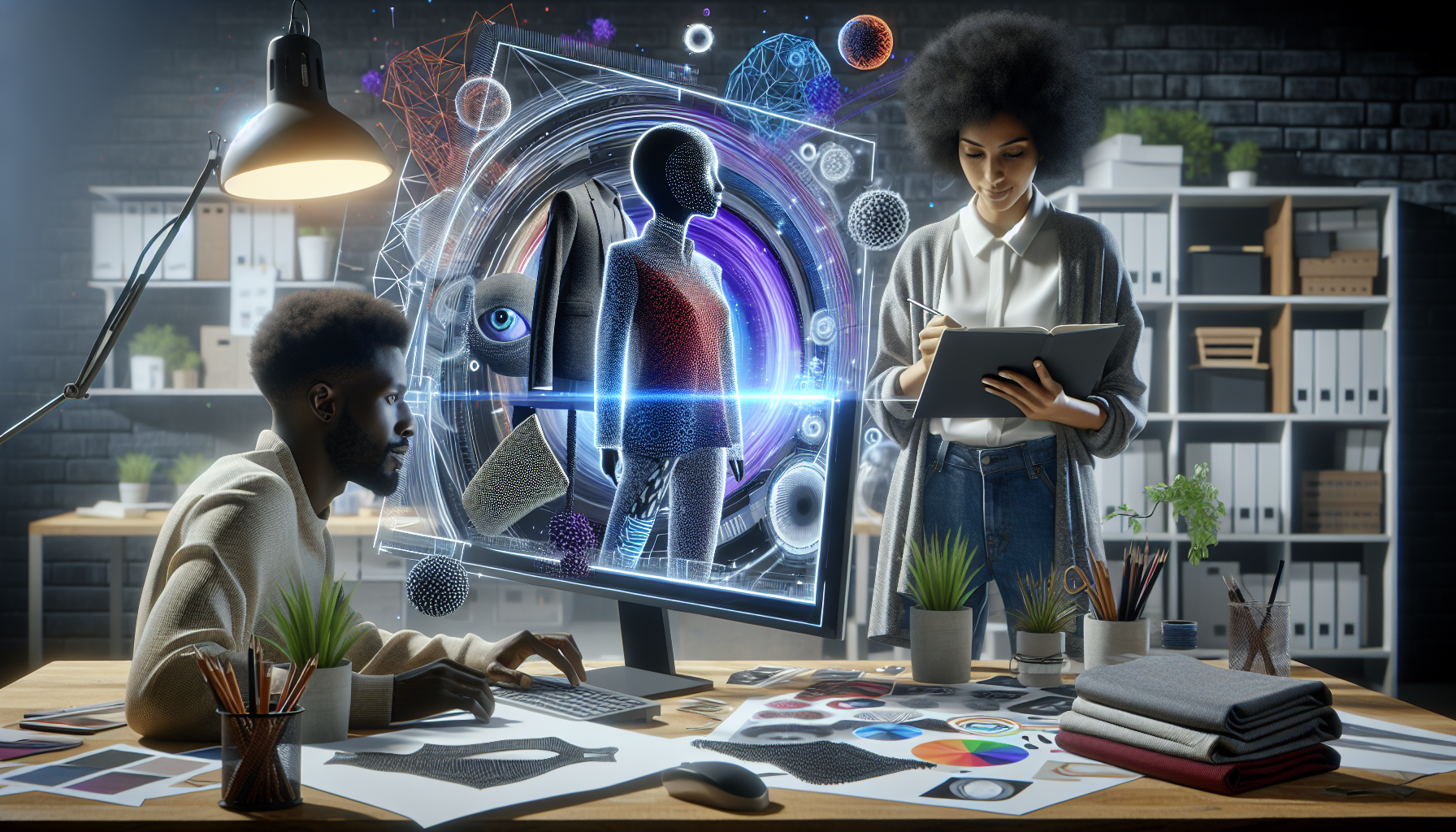In the sophisticated tapestry of modern technology, artificial intelligence (AI) has become one of the most impactful threads, weaving its way into diverse industries and revolutionizing traditional practices. With its constant thirst for innovation and creative expression, the fashion industry has not been left untouched by the waves of AI advancements. As AI continues to evolve, it profoundly transforms fashion design, influencing how designers conceptualize, create, and deliver their innovations to the market.
A New Age of Creativity and Efficiency
Implementing AI in fashion design sparks a symbiotic relationship that enhances both the creative process and production efficiency. AI algorithms can analyze vast datasets of fashion trends, consumer preferences, and historical design patterns to provide designers with innovative insights. This data-driven approach enables designers to craft collections that are not only aesthetically captivating but also aligned with market demands and future trends.
Seamless Integration in the Design Process
As AI integrates seamlessly into the design workflow, fashion designers can experiment with virtual designs before committing to physical prototypes. Virtual modeling software powered by AI can simulate how fabrics will drape, move, and appear under various lighting conditions. Designers can make immediate adjustments and explore different color palettes, cuts, and styles with the click of a button, thus reducing the materials waste and costs associated with traditional prototyping methods.
Customization at Scale
One of AI’s most significant impacts on fashion design is the potential for mass customization. AI systems can tailor designs to individual customer preferences, body shapes, and unique style inclinations while ensuring that these personalized creations remain scalable. This level of customization was once only achievable in haute couture, but AI is now democratizing bespoke fashion, making it accessible to a broader audience.
Sustainable Innovations in Fashion
Sustainability is a growing concern in the fashion industry, and AI is advancing the cause by streamlining the design process to minimize waste. By predicting style trends and consumer behavior with pinpoint accuracy, AI can help brands produce garments that resonate with consumers, reducing the likelihood of unsold inventory contributing to waste.
AI and Material Innovation
Beyond predicting trends, AI is also instrumental in developing new, sustainable materials. Machine learning algorithms are used to research and develop eco-friendly fabrics that replace less sustainable options. This paves the way for more conscious fashion choices and inspires designers to think differently about the materials they use in their creations.
The Challenge of Authentic Creativity
Despite AI’s many benefits in fashion design, there remains a lively debate around the preservation of authenticity and the soul of creative intuition that has long been the hallmark of fashion. Critics argue that an overreliance on data-driven design can lead to homogenization, stripping away the raw, human element that frequently defines iconic fashion statements.
Balancing Art and Science
The critical challenge for fashion designers in the AI era is balancing embracing cutting-edge technology and maintaining the artistic integrity that distinguishes their work. Designers must leverage AI as a tool that augments their creativity rather than as a crutch that dictates it. The future success of fashion design will largely depend on how well designers can walk this tightrope.
The Changing Landscape of Skillsets
The surge of AI in fashion requires a new breed of designers who are artistic and proficient in the language of technology. Educational institutions and design houses increasingly emphasize the need for designers who can navigate both the worlds of style and algorithms. Consequently, the role of the fashion designer is evolving, marrying aesthetic prowess with technical acumen.
Preparing for Future Careers in Fashion
As the landscape shifts, up-and-coming designers must prepare for a career that is as much about data analysis and software fluency as it is about color theory and textile knowledge. This evolution opens the doors to diverse individuals who can contribute to fashion in novel ways, enriching the industry with a blend of talents previously unassociated with fashion design.
Embracing the Transformation
The impact of AI on fashion design represents a radical transformation reshaping the industry from its core. While it presents challenges, it also offers greater creativity, efficiency, sustainability, and personalization opportunities. By embracing AI as a complement to human ingenuity, the fashion world can continue to craft compelling narratives woven from the threads of both tradition and innovation. As designers and brands navigate this new territory, the very essence of fashion—its ability to reflect the zeitgeist and push boundaries—remains undiminished, now energized by the infinite possibilities that AI brings to the drawing board.

